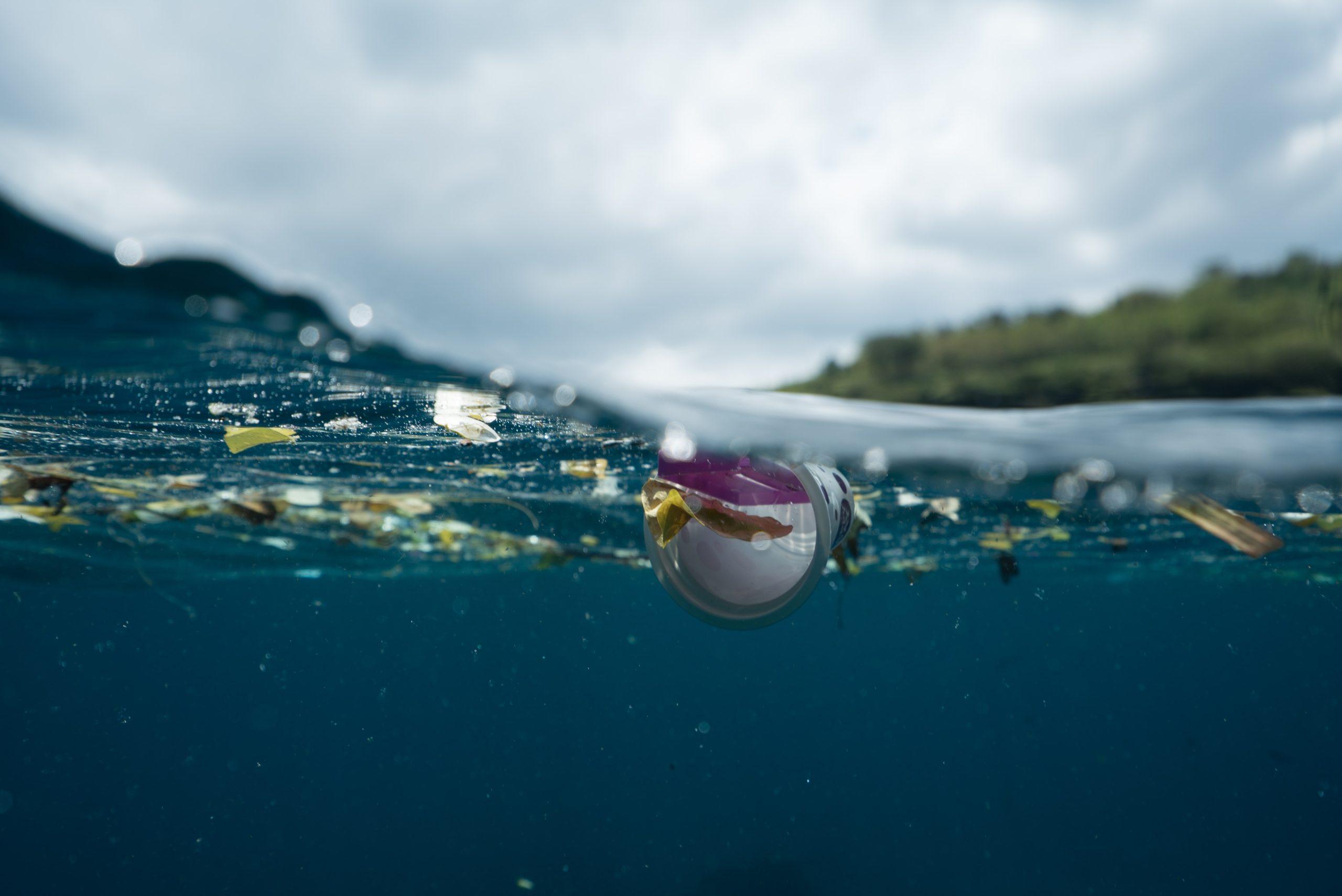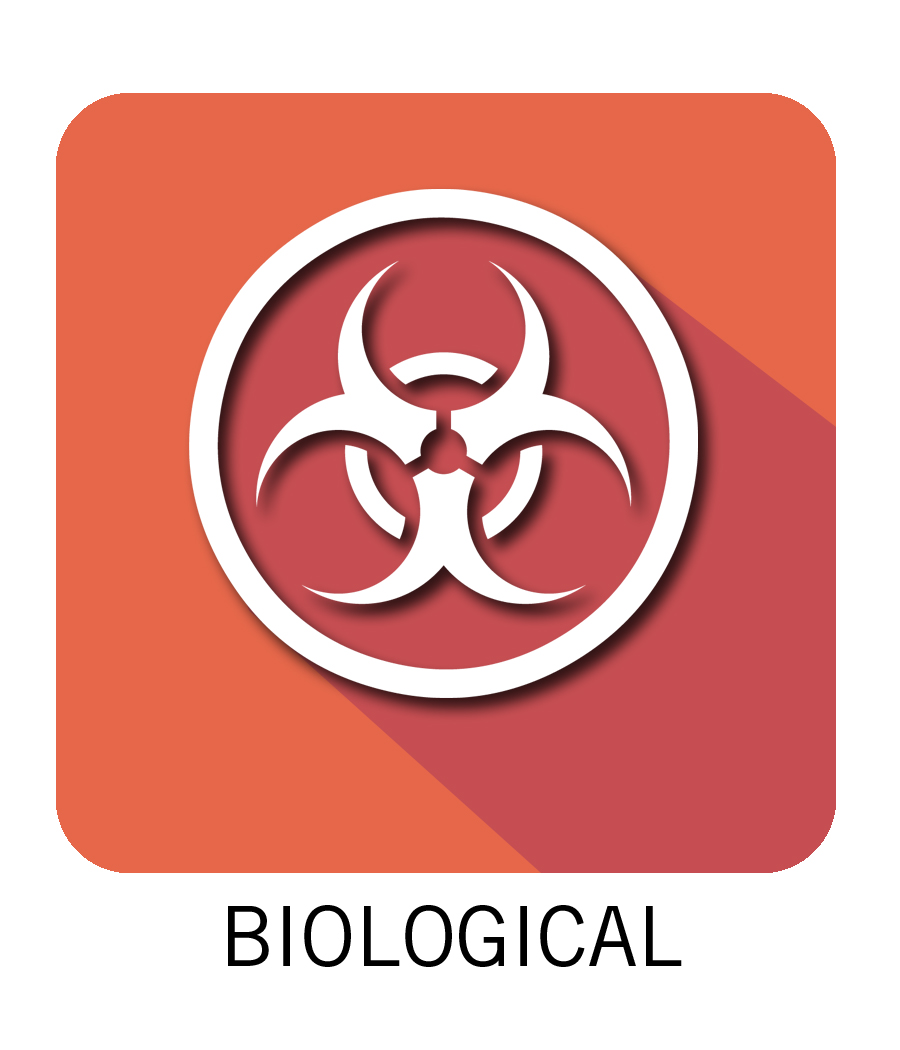
Biological
Biological agents are organisms or toxins that can kill or incapacitate people, livestock, and crops. The three groups used as weapons are bacteria, viruses, and toxins.
Be Prepared
-
- Stockpile 3 days of non-perishable food.
- Stockpile 3 days of water (3 gallons for each person).
- Develop a family contact plan (how to get in touch via phone, internet, or another method).
- Stockpiling antibiotics is NOT recommended.
- Stockpiling a gas mask is NOT recommended.
- Check with your doctor to ensure all required immunizations are up to date. (Children and older adults are particularly vulnerable to biological agents.)
Suspected Attack
-
- The first evidence of an attack may be when you notice symptoms of the disease caused by exposure to an agent. Be suspicious of any symptoms you notice, but do not assume that any illness is a result of an attack. Use common sense and practice good hygiene.
- If you become aware of an unusual and suspicious substance nearby:
- Move away quickly.
- Wash with soap and water.
- Contact authorities.
- Listen to the media for official instructions.
Post-Attack
-
- If possible, remain at home.
- You have time – treatment does not have to start immediately.
- Listen to local news.
- If needed, you will be told where to obtain treatment.
- Remove and bag your clothes and personal items.
- Do NOT immediately rush to the emergency room.
FAQs
Q: What should I do to protect my family and myself if a biological agent is released into my community?
A: Emergency management teams will let you know if you need to evacuate the area. Self–isolation will protect you and your family from contagious diseases. Most agents are destroyed by bleach or in some cases, soap and water. Do NOT drink bleach or use it on the skin.
Q: What should I do if I'm in a building during a biological attack?
A: Stay in your area so that you do not kick up dust. Cover your mouth with a handkerchief or clothing. If a letter or package is the source of the biological material, close the doors and windows of the room where the source is located and turn off air conditioning, heating and fans. Shout only as a last resort – shouting can cause you to inhale dangerous amounts of dust.
Q: Is there a way to distinguish between anthrax and a cold or flu?
A: A runny nose is a rare symptom of anthrax. A person with a runny nose and other common flu-like symptoms outside of the “flu season” should trigger medical attention
Q: How long does the virus survive if smallpox is released in a cloud (aerosol) form?
A: The smallpox virus is fragile. In lab experiments, when smallpox is put into a cloud form, 90 percent of the smallpox virus dies within 24 hours; in the presence of sunlight, this percentage is even more significant.
Q: Is it too late to get a vaccination if someone is exposed to smallpox?
A: Vaccination within three days of exposure to smallpox will significantly reduce the severity of the disease in the vast majority of people. Vaccination 4 to 7 days after exposure likely offers some protection from the disease or may modify its severity.
Q: Should I keep a stockpile of antibiotics?
A: No. No single pill can protect against all types of biological agents, and antibiotics have a limited “shelf life” before they lose their strength. For most bacterial agents, the antibiotic regime must be specific for the agent and prescribed by medical personnel.
Q: Is it safe to drink water from the tap?
A: It would be extremely difficult for a terrorist to contaminate our drinking water supplies to cause widespread illness. Anything deliberately put into the water supply would be significantly diluted, and water treatment facilities routinely filter the water supply and add chlorine to kill harmful germs. Citizens can protect themselves by boiling water, which will kill any microorganisms that may have survived the municipal filtration system.



